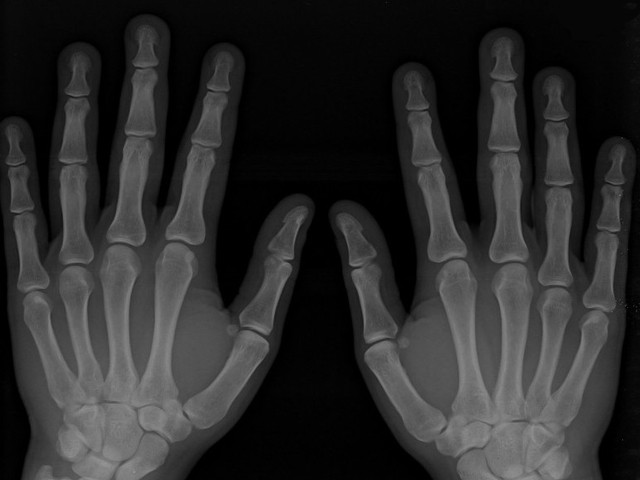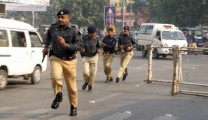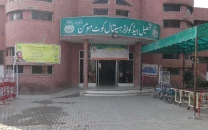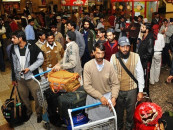Orthopaedic treatment stalled at govt hospitals
With limited healthcare funding, hospitals expect patients to arrange bone repair rods and plates from suppliers

Although the Sindh government claims free medical treatment is available in all public hospitals, the reality for patients needing complex surgical procedures — particularly those with fractures — is quite the opposite.
Reportedly, patients requiring operations for various types of fractures are often asked to purchase all surgical tools themselves. In nearly 95 per cent of cases, patients at public hospitals are expected to procure orthopaedic rods and plates used in bone repair surgeries from external suppliers. These orthopaedic implants, imported from abroad, are costly and often beyond the reach of the average patient.
For instance, Zaheer Ahmed Khan was hit by a motorcycle near Khudadad Colony late at night nearly four months ago. After emergency treatment, it was determined that his left shinbone had been fractured. Due to overcrowding and lack of surgical materials at the Jinnah Hospital, his family moved him to a private hospital, where the surgery including the implant of a metal plate cost around Rs200,000. Although Zaheer is now able to walk considerable distances even without a stick, his family had to incur considerable expenses on medical check-ups, medication, a walking frame and a walking stick.
Similarly, the father of Rashid, who is receiving treatment at Jinnah Hospital, shared that his son sustained fractures in one arm and one leg during a motorbike accident. "My son's limbs were placed in a cast, and we were told that the actual procedure involves inserting a plate through surgery to align and heal the bone. A doctor at the Jinnah Hospital instructed us to return after three months with the required surgical equipment. When I inquired about the cost of the recommended items, I discovered that various types of plates were available in the market, all of which were extremely expensive. We took out a loan to purchase the surgical supplies and proceeded with the operation for my son," recounted the father.
Dr Muhammad Suleman, Joint Executive Director of Jinnah Hospital and an orthopaedic surgeon, explained that there were various methods of treating fractures.
"These include conservative treatment, where a plaster is applied to the broken bone for a few weeks, followed by an X-ray to decide if surgery is necessary. In some cases, the fracture does not heal with plaster alone and surgery becomes essential. It is true that in government hospitals, patients are asked to arrange their own surgical equipment for such procedures. However, in cases of extreme need, assistance may be sought from welfare organizations or philanthropic individuals, though this process can take time. Dozens of fracture cases arrive daily, and it is simply not possible to provide surgical supplies to all patients, free of cost," justified Dr Suleman.
Dr Atiq Qureshi, Medical Superintendent at the Sindh Government Liaquatabad Hospital, added that district hospitals operated on significantly lower budgets than tertiary care centers. "Our hospital sees a high volume of road accident victims in the emergency ward daily. In the absence of adequate surgical facilities, these patients are stabilized and then referred to Civil or Jinnah Hospital. The average cost of a leg bone implant surgery ranges between Rs15,000 and Rs20,000, and with multiple patients daily, the expense can easily exceed Rs0.1 million. This exceeds our limited budget. The majority of district hospital funds are allocated towards medicines and diagnostic tests," claimed Dr Qureshi.
Over the past two years, prices of medicines have increased by 60 to 70 per cent. Likewise, the prices of imported orthopaedic implants have seen a significant surge. Hospital administrations have confirmed that the worsening condition of Karachi's roads has led to a spike in traffic accidents, resulting in a daily influx of patients with broken bones. Typically, these patients receive only plaster casts at public hospitals since they do not have the capacity to offer permanent treatment.



















COMMENTS
Comments are moderated and generally will be posted if they are on-topic and not abusive.
For more information, please see our Comments FAQ